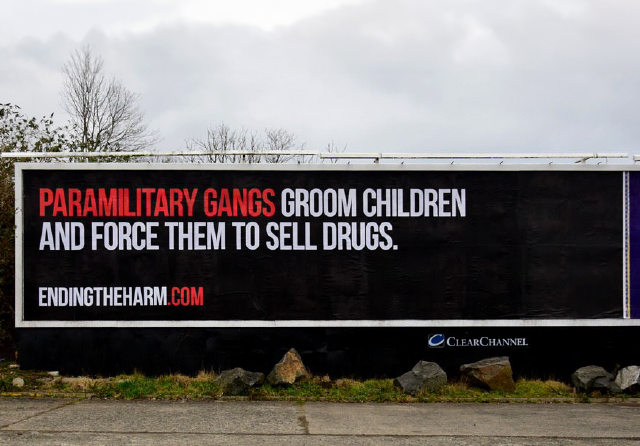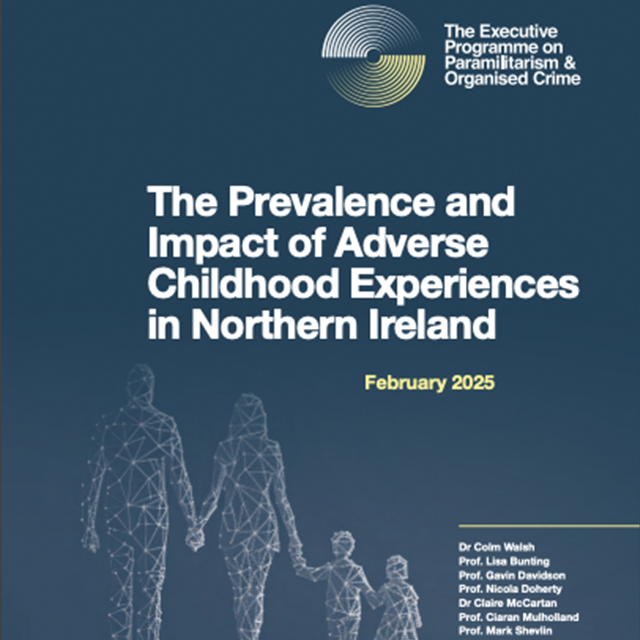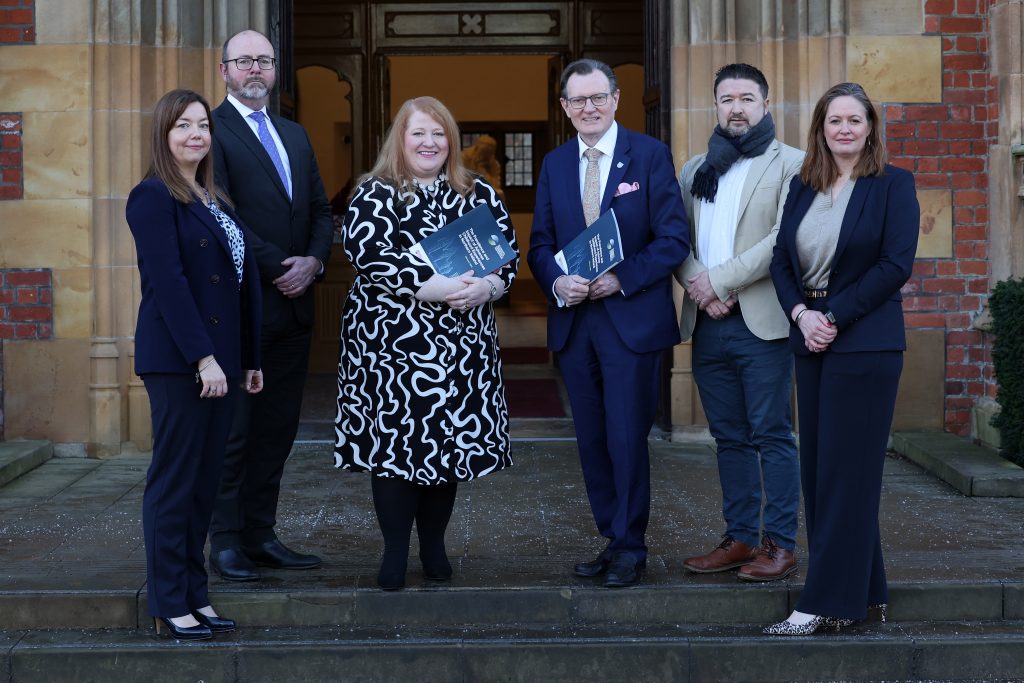The Ending the Harm public awareness campaign is actively changing perceptions about the harms perpetrated by paramilitary gangs in Northern Ireland. This was the clear message from the publication of new market research insight into the public awareness campaign by the Executive Programme on Paramilitarism and Organised Crime.
The current Ending the Harm campaign was launched in October 2024 and gives a name to the many ways that paramilitaries exploit vulnerable people. It helps to raise awareness and encourage the difficult conversations that are vital to keep people safe from the harm caused by paramilitary gangs. It has appeared in communities right across Northern Ireland and is also present on bus advertising, giving us further visibility in geographical areas where there may be a lack of advertising space. You can view the posters here.


In December 2024 campaign tracking research was undertaken for the campaign. Approximately 1,000 people were surveyed through an Online Omnibus Survey, with the sample being representative of the Northern Ireland adult (18+) population. The survey results have shown that 77% of respondents regarded the campaign as believable, 66% of respondents thought it was impactful and 89% of respondents fully supported what the campaign was saying and trying to do.
The research has highlighted that the majority of respondents agreed with the campaign statements that paramilitary gangs:
- Controlled communities with violence, intimidation and drug dealing (67%)
- Exploited hard-working local businesses (65%)
- Forced children into violence, stealing their future (63%)
- Robbed businesses by taking their hard-earned money (61%)
- Groomed children to force them to sell drugs (59%)
Agreement with the campaign statements was higher with respondents who were already aware of the campaign verses those who were looking at the posters for the first time, helping to validate the importance of this campaign to highlight a range of ‘hidden’ paramilitary harms.
Finally, the impact of the campaign on respondents was both significant and powerful, with the majority in agreement that ‘paramilitaries are just criminals’ (79%), ‘there was no place for paramilitary gangs in Northern Ireland’s future’ (77%), ‘paramilitaries don’t protect you, they intimidate their own communities’ (76%), and they exploit women and children (69%).
You can view the survey report here.



